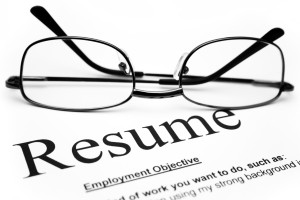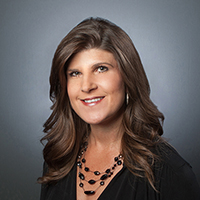Resume Resolutions
By Deb Abell, Recruiting Manager
 If you’re like most people, you made a commitment as the ball dropped to becoming healthier, happier, stronger, or more financially fit. Now that you have had some time to focus on those personal goals, why not make the rest of 2016 the year of the professional resolution, starting with your resume?
If you’re like most people, you made a commitment as the ball dropped to becoming healthier, happier, stronger, or more financially fit. Now that you have had some time to focus on those personal goals, why not make the rest of 2016 the year of the professional resolution, starting with your resume?
1. Make a great first impression.
“A winning resume has an ‘X-Factor’ that allows a candidate’s confidence, personality, and passion to shine through,” says career coach Donald Burns. “Your resume must make an immediate impact – within a few seconds – so graphical enhancements can help catapult your resume to the top of the pile.”
2. Make your resume a list of accomplishments, not responsibilities.
“The resume is now much more achievement-based,” says career consultant Caitlin Sampson, co-founder of Regal Resumes.
Listing responsibilities just tells recruiters what you were asked to do. Listing your accomplishments illustrates what you actually did and how you went above and beyond the job’s requirements.
3. Focus on the skills you want to use in your next job.
Don’t waste valuable space by describing all the tasks you did in previous positions if you are not looking for similar work in the future. Even if you are exceptionally skilled at something (like event planning), if you’re looking for work outside of that field, emphasize your accomplishments not related to event planning (like customer service or project management).
4. Forget the one-page rule.
Unless you are new to the workforce (one or two years of experience) there is no need to try and squeeze a career’s worth of accomplishments into one page. A two-page resume is acceptable – and even recommended.
“Typically a resume can be up to two pages if you are applying for a management position and you have between five and ten years of experience,” says Sampson, the career consultant from Regal Resumes.
5. Use active verbs.
Whenever possible, use strong active verbs like mobilized, analyzed, negotiated, or implemented. Try to avoid nouns, passive verbs, or weak verbs –to be, to do, to work – when describing your achievements. And always try to make yourself the subject of the verbs you are using. For example:
Strong: Collaborated with sales team to analyze ROI of marketing campaigns.
Weak: Responsibilities included working with sales staff throughout ROI analysis of various marketing campaigns.
6. Customize.
Your resume is the time to showcase your skills and introduce yourself to potential employers, but not every potential employer will be looking for the same things. Make sure to highlight the jobs and skills that are most relevant to the job you are applying for – especially if you are looking for jobs in various industries – and use keywords from the job posting.
7. Get a proofreader.
Arguably the most important (and overlooked) step is proofing your resume. At McKinley, we advise candidates to have at least two other people read their resume before submitting it. Typos happen to the best of us, but the moment you apply for your dream job is not the time to realize you are not 100% sure when to use affect/effect.
With the average recruiter spending just 6 seconds on each resume that crosses their desk, you can’t afford to be just another piece of paper. This year, resolve to create a stand-out resume that will land you your next position.
 As the Recruiting Manager at McKinley Marketing Partners, Debra is responsible for leading the recruiting team and sourcing experienced marketing professionals for medium size to Fortune 500 companies. Debra, who recently relocated to McKinley’s new Houston office, has 19 years of experience in the staffing industry and holds multiple AIRS recruiting certifications. She is an expert at identifying candidates through deep web searches.
As the Recruiting Manager at McKinley Marketing Partners, Debra is responsible for leading the recruiting team and sourcing experienced marketing professionals for medium size to Fortune 500 companies. Debra, who recently relocated to McKinley’s new Houston office, has 19 years of experience in the staffing industry and holds multiple AIRS recruiting certifications. She is an expert at identifying candidates through deep web searches.
Debra once lived on in Adak, AK (about 1,200 miles to the nearest major city) for two years, but these days spends her free time with her family and running – her favorite races are 5Ks and half-marathons.

